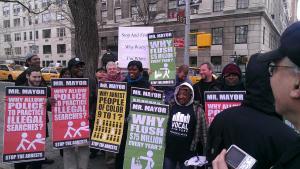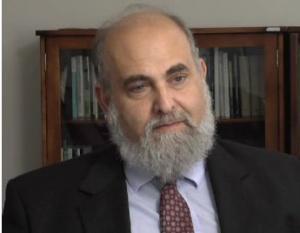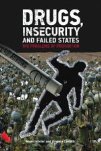New York City and the NYPD are under fire this week for both their stop-and-frisk policing program and their massive number of marijuana possession busts in a state where it is supposed to be decriminalized.
Former New Zealand prime minister and current head of the UN Development Program Helen Clark has toughly criticized the reliance on criminal justice approaches in the global drug war.
Last year we began to offer the book "Marijuana Legalization: What Everyone Needs to Know" as an option for donating members. Authors of it are now consulting for Washington State on implementing legalization there. You can support us and get some insights into what they might do, by ordering it here.
Medical marijuana action was concentrated in state legislatures this week, although there was also news from the Massachusetts attorney general's office.
The District of Columbia has now joined ten states in implementing 911 Good Samaritan laws designed to reduce overdose deaths by removing the fear of arrest and prosecution from victims and witnesses who seek medical help.
A marijuana decriminalization bill is moving in Maryland.
Washington state has selected a consulting firm led by drug policy scholar Mark Kleiman to be its marijuana consultant. Reformers have reacted with caution.
Recalcitrant law enforcement and opposition from the governor's mansion is scuttling medical marijuana in Minnesota this year, even though it has broad popular support. But there's always next year.
A New Hampshire marijuana legalization bill has been voted down by the House. Another one remains alive, but is bottled up in committee.
Vermont is now the latest state to see a marijuana legalization bill introduced.
Nevada is the latest state to see a marijuana legalization bill in the wake of last November's victories in Colorado and Washington.
A Customs agent, a Texas deputy, and a small-town California cop all go down this week.
There has been a double-barreled challenge this week to the NYPD and its heavy-handed policing. On the one hand, the department and the city are being sued in federal court over their stop-and-frisk program, which is aimed predominantly at young men of color. On the other, the NYPD is facing the glare of publicity over a new report that contends it has wasted as much as a million man-hours over the past ten years arresting low-level marijuana offenders.

March 2012 protest of NYC stop and frisk violations
Under the stop-and-frisk program, which the city touts as a crime-fighting effort, more than 531,000 people were stopped last year and nearly five million in the past decade. Some were stopped only for questioning, some had their bags or backpacks searched, some were subjected to full pat-down searches. Only 10% of those stops resulted in arrests -- including arrests for public marijuana possession after police tricked or intimidated people into pulling out their baggies (possession is otherwise decriminalized in the state) -- and only a tiny number resulted in the seizure of weapons.
The massive number of annual stop-and-frisks, five times the number a couple of decades ago, raises questions itself. But who is being stopped-and-frisked is raising even more questions and concerns. While blacks make up a quarter of the city's population, they accounted for 51% of all stop-and-frisk encounters, being stopped at a rate twice what would be expected with color-blind enforcement. Whites, on the other hand, make up 44% of the population, but accounted for only 11% of stop-and-frisk encounters.
Many of the stop-and-frisks are illegal and the enforcement is racially biased, argued attorneys in the class action lawsuit in federal court this week. In the case, which began Monday, attorneys for the plaintiffs -- people who were subjected to stop-and-frisk searches -- are seeking a court-appointed monitor to oversee changes in police practices.
They are not seeking to ban stop-and-frisk searches because they have been found legal. But US District Court Judge
Shira Scheindlin, who has expressed deep concerns over the tactic in previous rulings, could order reforms. The trial could last for up to a month.
NYPD is doing illegal stops and must reform its practices, said
Center for Constitutional Rights attorney Darius
Charney, who is representing the plaintiffs. The stops are "arbitrary, unnecessary, and unconstitutional" and a "frightening and degrading experience" for "thousands, if not millions" of New Yorkers,
Charney argued. He said plaintiffs will present "powerful testimonial and statistical evidence" that residents are stopped for no good reason.
On Monday, the first plaintiff witnesses took the stand. Devin
Almonor, 16, the son of a police officer, testified that he was stopped when he was 13, handcuffed and thrown against an unmarked police car as he made his way home. David Floyd, now a 33-year-old medical student, testified that he was stopped twice without cause.
Attorneys for the city responded that in a city that large, large numbers of stop-and-frisks should not be unexpected and that the NYPD went where the crime was.
"The New York Police Department is fully committed to policing within the boundaries of the law," said Heidi Grossman, an attorney for the city. "Crime is not distributed evenly across the city. Police are given an awesome responsibility, one of which is to bring crime down and keep people safe."
Given those awesome responsibilities, a new report from the
Drug Policy Alliance and the
Marijuana Arrest Research Project is raising eyebrows. The report's main finding is clear from its title:
One Million Police Hours: Making 440,000 Marijuana Possession Arrests in New York City, 2002-2012. The report was authored by
CUNY sociology professor Dr. Harry Levine, an expert on marijuana possession arrests, at the request of members of the city council and the state legislature.
While marijuana possession offenders typically faced only fines once they had their day in court, the report found that the arrests themselves inflicted immediate pain. Those 440,000 arrests resulted in five million hours of police custody, an average of more than 10 hours per person of being held in the city's notorious holding cells, often overnight.
"We cannot afford to continue arresting tens of thousands of youth every year for low-level marijuana possession," said Alfredo Carrasquillo, civil rights organizer with VOCAL-NY. "We can't afford it in terms of the negative effect it has on the future prospects of our youth and we can't afford in terms of police hours. It's shocking that the same mayor who has been taking money away from youth programs and cutting other social services, is wasting tens of millions of dollars locking youth up through the NYPD's marijuana arrests crusade. We need legislative action to fix this madness."
"This report shows that people arrested for marijuana possession spend an average of 12-18 hours, just in police custody, and the vast majority of those arrested are young Black and Latino men from seven to ten neighborhoods in NYC," said Chino Hardin, field coordinator and trainer with the Center for NuLeadership on Urban Solutions. "This is not just a crisis, but a frontline civil rights issue facing urban communities of color in the 21st century. We are calling on Governor Cuomo to do the right thing, and exercise the moral and political will to address this injustice."
While Mayor Bloomberg and Police Commissioner Raymond Kelly last fall announced changes it how the NYPD processes marijuana arrests and the number of pot possession busts have begun to decline slightly, advocates are calling on the legislature and the governor to change the state's 1977 decriminalization law to remove law enforcement's "in public view" loophole, the provision NYPD has used to great effect.
"For years, New Yorkers from across the state have organized and marched and rallied, demanding an end to these outrageous arrests. And now we learn that the police have squandered one million hours to make racially biased, costly, and unlawful marijuana possession arrests. This is scandalous," said Gabriel Sayegh, New York state director for the Drug Policy Alliance. "I’m sure we can all think of more effective things for the police to spend their time on -- imagine if NYPD committed one million hours to working with communities to stop gun violence or to pursue unsolved serious crimes. We stand with the caucus and other leaders in Albany -- both Democrats and Republicans -- in demanding reform. The hour of change is upon us, and reform is long, long overdue."
Whether it is the massive stop-and-frisk policing program or the practice of turning marijuana possession tickets into misdemeanor arrests complete with post-booking jail time and criminal records, NYPD is coming under increasing scrutiny and criticism..back to top
It is increasingly clear that the "war on drugs" has failed and there needs to be room for new approaches, the head of the United Nations Development Program (UNDP) said Thursday. UNDP head Helen Clark's remarks ahead of the presentation of the organization's 2013 Human Development Report came in a pre-ceremony interview with Reuters.

UNDP head Helen Clark (undp.org)
Clark is no small-time functionary. From 1999 to 2008 she served as the prime minister of New Zealand -- three terms, according to
Wikipedia -- and before that headed the nation's health ministry, among others. As
UNDP chief she is the UN's third highest-ranking official.
"To deal with drugs as a one-dimensional, law-and-order issue is to miss the point," Clark said. "Once you criminalize, you put very big stakes around. Of course, our world has proceeded on the basis that
criminalization is the approach. We have waves of violent crime sustained by drug trade, so we have to take the money out of drugs," she said.
Clark didn't go as far as calling for drug legalization, but she said she was encouraged by recent efforts by Latin American leaders to put the issue on the global agenda.
"The countries in the region that have been ravaged by the armed violence associated with drug cartels are starting to think laterally about a broad range of approaches and they should be encouraged to do that," she said. "They should act on evidence."
Latin American leaders have said "that the approach being followed has failed so we need a fresh set of eyes on this as well," the former New Zealand prime minister added. "And I think the debate going on at the regional level is a very, very useful one."
"I've been a health minister in my past and there's no doubt that the health position would be to treat the issue of drugs as primarily a health and social issue rather than a criminalized issue," Clark explained.back to top
Dear friends,
Last year we began to offer the book "Marijuana Legalization: What Everyone Needs to Know" as an option for members donating $35 or more. This week it was announced that a policy firm headed by one of the authors of the book, Prof. Mark Kleiman, had won Washington State's contract to do analysis related to the implementation of I-502, and that the book's other authors would be part of that team. It was a big news item this week, on CNN and other outlets, and I blogged about it here and here. The discussion has included concerns reformers have raised about some of Kleiman's past statements about state legalization, and Kleiman's response to that.
We continue to offer this book, as well as the other items we offered it together with: the book Drugs, Insecurity and Failed States: The Problems of Prohibition and the DVD Lynching Charlie Lynch. (Follow the links above for Drug War Chronicle reviews of each of these works.) I've found Kleiman et al's book to be pretty valuable, even while disagreeing with some things, and it certainly will offer some clues as to where they might go with their recommendations to the state. When those recommendations come out, we'll undoubtedly have some things to say -- reading the book would be a great way to prepare.
Donate $35 or more to StoptheDrugWar.org and you will be eligible for a complimentary copy of "Marijuana Legalization: What Everyone Needs to Know" or one of the other items. Donate $65 or more and you'll be eligible for any two. Donate $95 or more and you can receive all three. Other offers we've announced continue to be available too.
(Each of these items, and each combination along with other available items, can be found in the "membership premiums" section of our online donation form, under the indicated minimum total. Many older items are also still available, as you'll see on the form, some for as little as $15.)
At a time like this -- when people are talking about drug policy like never before -- the movement's internet strategy is also more important than ever before. So please support our work with a generous donation by credit card or PayPal today. You can also donate by mail or give stocks -- info below.
Lastly, please note that even with a nonprofit, bulk discount, we spend a significant amount to purchase these items and send them to you -- if you can afford to donate more than the minimum, or to supplement your donation with a continuing monthly contribution, I hope you'll consider doing so. If gift items are not important to you, I hope you'll consider sending a donation that's entirely for our work.
Donations to our organization can be made online at http://stopthedrugwar.org/donate, or they can be mailed to: DRCNet Foundation (tax-deductible), P.O. Box 18402, Washington, DC 20036; or Drug Reform Coordination Network (non-deductible for lobbying), same address. (Note that selecting gift items will reduce the amount of your donation that is tax-deductible, by the items' retail value.)
If you wish to donate stock, the information to give your brokerage is Ameritrade, (800) 669-3900), DTC #0188, and account number 781926492 for tax-deductible gifts or 864663500 for non-deductible gifts -- please make sure to contact us if donating in this way.
Thank you for supporting the Drug War Chronicle newsletter and StoptheDrugWar.org's work engaging the debate at this pivotal time in drug policy reform.
Sincerely,

David Borden, Executive Director
StoptheDrugWar.org
Washington, DC
http://stopthedrugwar.org
back to top
Medical marijuana action was concentrated in state legislatures this week, although there was also news from the Massachusetts attorney general's office.
California
On Tuesday,
Rep. Tom Ammiano introduced a bill to regulate dispensaries. The San Francisco Democrat filed Assembly Bill 473, which would create comprehensive state-level regulations for dispensaries. It would create a Division of Medical Cannabis Regulation within the Department of Alcoholic Beverage Control to set standards and rules and set fees and would require dispensaries to have state-issued permits.
Massachusetts
Last Wednesday,
the state attorney general's office struck down a local ban on dispensaries. The office nixed a ban in the town of Wakefield, ruling that towns can regulate, but not prohibit dispensaries under the state law. Such bans would frustrate the purpose of the medical marijuana law that allows patients with certain medical conditions to obtain marijuana for medical use, the ruling said. But in a separate decision, the office upheld a temporary moratorium on dispensaries in the town of Burlington.
New Hampshire
On Wednesday,
a medical marijuana bill passed the House. The bill, House Bill 573, was approved by an overwhelming 286-64 vote. The bill would allow qualifying patients to cultivate up to three mature plants or obtain cannabis from one of five non-profit, state-regulated alternative treatment centers. It will next be considered by the Senate, which passed similar legislation in 2009 and 2012.
Gov. Maggie Hassan (D) previously expressed support for making medical marijuana legal in the Granite State.
Oregon
Last Friday,
a bill to license and regulate dispensaries was introduced by Rep. Peter Buckley (D) and Sen. Floyd
Prozanski (D). The bill, House Bill 3460, would require medical marijuana facilities to seek a license from the Oregon Medical Marijuana Program similar to the license that patients and registered growers are required to obtain under current law. The bill sets out a series of regulations the medical marijuana facilities must meet and allows the Oregon Health Authority to draft additional rules and regulations to ensure patients are protected.
back to top
As of Tuesday, there will be limited legal protections for people who witness or experience a drug overdose in the District of Columbia and summon medical assistance. That's because the District's Good Samaritan Overdose Prevention Amendment Act goes into effect then.
Passed last fall by the DC city council, the new is aimed at reducing overdose deaths by removing the threat of arrest from overdose victims and those who might assist or seek help for them. Many overdose deaths do not occur immediately, and medical interventions can save lives, but some drug users and their peers are reluctant to seek help because of fear of arrest and prosecution.
"
Criminalization should not be a barrier to calling 911," said Grant Smith, policy manager with the Drug Policy Alliance. "This new law will help encourage District residents who witness an overdose to pick up the phone and help save a life."
Under the new law:
- Law enforcement officers who observe small amounts of illegal drugs or paraphernalia at the scene of an overdose should not consider these drug law violations to be crimes for the individual experiencing the overdose and the witness who sought emergency medical services.
- A minor is provided limited protection from criminal charges for underage possession of alcohol if they experience an overdose or seek emergency medical services for a peer.
- An adult who is 25 years of age or younger is given limited protection from criminal charges for providing alcohol or other drugs to a minor who is 16 years of age or older if they seek emergency medical services for the minor in need.
- The possession of naloxone – a medication that rapidly reverses opiate overdoses – and its use by lay persons on individuals experiencing an opiate overdose is decriminalized.
Ten states (California, Connecticut, Colorado, Florida, Illinois, Massachusetts, New Mexico, New York, Rhode Island and Washington State) have already enacted Good Samaritan laws for preventing fatal drug overdoses. Good Samaritan legislation is currently pending in New Hampshire, North Carolina, Missouri and other states. A coalition comprised of the Drug Policy Alliance, Students for Sensible Drug Policy, American Civil Liberties Union of the Nation's Capital, Bread for the City, HIPS, students from the George Washington University School of Public Health and Health Services and GW Law Students for Sensible Drug Policy, parents and advocates supported passage of the Good Samaritan law.
"Implementation of this new law by public health and law enforcement officials is critical to improving public willingness to immediately seek medical assistance for overdoses involving illegal drug and alcohol use," said Smith.
Spurred by the rapid rise in opioid pain medication prescribing and the diversion of pain pills, drug overdose rates nationwide have increased five-fold since 1990 and more than doubled between 2000 and 2010. Heroin and other opiates are the second leading cause of overdose deaths in the District in recent years, following cocaine.
back to top
A bill that would decriminalize the possession of small amounts of marijuana in Maryland passed the state Senate Tuesday by a nearly two-to-one margin. The vote was 30-16.
Sponsored by
Sens. Bobbi
Zirken (D-Baltimore County) and Allan
Kittleman (R-Carroll County),
Senate Bill 297, would make possession of 10 grams (about a third of an ounce) or less a civil offense punishable by no more than a $100 fine. Under current state law, possession of 10 grams or less is a misdemeanor punishable by up to 90 days in jail and a $500 fine.
A state legislative fiscal and policy analysis of the bill estimated that it would result in small losses in fine revenues, small savings from decreases in the number of jail days, and would significantly reduce caseloads in the Office of the Public Defender.
The bill now proceeds to the House, where it has been assigned to the Judiciary Committee. If it successfully passes out of committee, it would have to get a House floor vote, and pass it, before being sent to
Gov. Martin O'Malley (D).
back to top
The state of Washington has chosen its official marijuana consultant as it marches boldly forward toward implementing the voters' decision to legalize marijuana at the polls last November. The State Liquor Control Board, which is charged with overseeing the nascent legal marijuana business, announced Monday that it had selected a Massachusetts-based firm headed by academic drug policy analyst Mark Kleiman.

Mark Kleiman (ncjrs.org via wikimedia.org)
The firm,
Botec Analysis Corporation, has been in existence since the
mid-1980s and has won contracts to evaluate government programs and done consulting on drugs, crime, and public health.
Botec advised the Office of National Drug Control Policy on demand reduction programs in the early
1990s and has studied efforts to suppress heroin dealing in Lynn, Massachusetts, among other projects.
Kleiman, a professor public policy at UCLA, has written a number of books on drug and criminal justice policy, including
coauthorship of last year's primer,
Marijuana Legalization: What Everyone Needs to Know. Some of his stands over the years, including the
contention that states couldn't legalize marijuana because the federal government wouldn't allow it, have irked drug reformers, and some reacted with skepticism to news of the appointment.
Tom
Angell, chairman of
Marijuana Majority, told the
Associated Press Kleiman needed to answer some questions. "You might ask him if he's either changed his mind or if he intends to advise the state on undermining the will of the voters,"
Angell said.
Kleiman in turn
responded on his blog.
The Liquor Control board sifted through more than 90 applications for the consultant position, and
Botec outscored all comers. At this point, the decision is provisional; rejected applicants can challenge the selection, but if no one challenges or any such challenges fail,
Botec is it.
Botec's job will be to advise the state on how build a newly legal industry from scratch. That's going to include such nuts-and-bolts issues on how many growers and retail outlets there should be, how products should be packaged, testing requirements, and even store hours of operation.
Meanwhile, all parties concerned are waiting for the federal shoe to drop. Stay tuned. This is going to be interesting.
back to top
Bills to allow for the use of medical marijuana in Minnesota have popular support and may still be introduced this year, but will be little more than place markers for 2014, supporters said this week, citing opposition from the governor's office and law enforcement.
Heather
Azzi of
Minnesotans for Compassionate Care said the effort got off to a late start this year, and that the rest of the year would be devoted to trying to shore up support.
"We just had a lot of background work to do before we got started," she told the
Minneapolis Star-Tribune. And there is a lot of work to be done assuaging the concerns on opponents. "There has to be a way for us to mitigate their concerns," she said. "We will be meeting with them between now and January to do just that."
Medical marijuana made it through the legislature in 2009, only to be vetoed by
then-Gov. Tim
Pawlenty (R). The current governor, Democrat Mark Dayton, isn't any friendlier on the issue.
He told the
Associated Press in December that he wasn't interested in advancing either medical marijuana or decriminalization. "I don't think we need another drug operating in our society," he said then.
Minnesota law enforcement remains intransigent as well. Dennis Flaherty, executive director of the Minnesota Police and Peace Officers Association, told the Star-Tribune any bill like the 2009 bill would not be going anywhere. "It would be a regulatory and enforcement nightmare," Flaherty said.
The state's political movers-and-shakers are apparently more attuned to the complaints of law enforcement than the desires of the electorate. A
Public Policy Polling survey earlier this month had support for medical marijuana at 65%, with 66% saying the governor should not veto such a bill if it passes and 54% saying they would disapprove of sheriffs and prosecutors opposing it.
back to top
A bill to legalize marijuana in New Hampshire is dead after a House vote Wednesday. The measure was defeated on a vote of 239-122 with no debate. Democrats supported the bill on a roughly two-to-one margin, while Republicans opposed it by roughly the same margin.
The vote against the bill came after the Criminal Justice and Public Safety Committee voted 12-8 last month not to pass the measure.
The bill,
House Bill 337, would have removed marijuana from the state's criminal code, effectively ending marijuana prohibition in the Granite State, but did not contain any provisions for taxation and regulation of cultivation and sales.
Another marijuana legalization bill,
House Bill 492, is still alive, but is stuck in the Criminal Justice and Public Safety Committee with no vote scheduled. That bill would allow people to grow up to six plants and sets up a scheme to tax and regulate marijuana commerce.
back to top
Vermont has become the latest state to see a marijuana legalization bill filed this year. House Bill 499, "An Act Relating to Regulation and Taxation of Marijuana," was introduced to the House and assigned to the House Judiciary Committee on Tuesday.
The bill is sponsored by Reps. Susan Davis (P-Washington), David Deen (D-Westminster), James Masland (D-Thetford), William Stevens (I-Shoreham) and Teo Zagar (D-Barnard).
It would allow people 21 and over to possess up to two ounces of marijuana and grow up to three plants. The bill also legalizes the possession of pot paraphernalia. It would also "create a regulatory structure for the wholesale and retail sale of marijuana that includes licensing and oversight by the Department of Liquor Control." The bill envisages a $50 per ounce excise tax on commercial marijuana sales.
People who possess more than two ounces or three plants or who sell marijuana outside regulated commercial channels would still be subject to criminal penalties.
And the bill would allow industrial hemp production in accordance with existing state law "regardless of whether federal regulations have been adopted."
Colorado and Washington freed the weed in November, and marijuana legalization bills have been or will be introduced this year in Maine, Massachusetts, New Hampshire, Pennsylvania, Rhode Island, and Oregon. A legalization bill died earlier this year in Hawaii, and one died this week in New Hampshire, but another New Hampshire legalization bill is still alive.
back to top
On Monday, Nevada became the latest state to see a marijuana legalization bill filed this year. Assemblyman Joe Hogan (D-Las Vegas) introduced Assembly Bill 402, which would allow people 21 and over to possess up to one ounce of marijuana and would set up a system of state regulation and taxation of marijuana commerce.
Nevada now joins Maine, Maryland, Massachusetts, New Hampshire, Pennsylvania, Rhode Island, and Oregon as states where legalization bills have been or will be filed. A legalization bill died earlier this year in Hawaii, and one died last week in New Hampshire, but another New Hampshire legalization bill is still alive.
The Nevada bill expressly does not allow driving while impaired, does not require employers to accept marijuana use, and limits legalization to those 21 and over.
Marijuana has already been legalized by voters in Colorado and Washington, and the Alaska courts have recognized a privacy right allowing for the possession of small amounts of marijuana in one's home. Marijuana remains illegal under federal law.
Hogan told the
Las Vegas Review-Journal he introduced the bill because of what he called the persecution of young people.
"I think it's better than chasing young kids around the neighborhoods, endlessly, and damaging them," he said. "We've been wasting terrible amounts of money on these completely unsuccessful law enforcement techniques. I think it's time to get serious, get it fixed and move on."
Hogan said that marijuana legalization would raise badly needed money for the state's education system. It envisions excise taxes on both wholesale and retail sales of marijuana and marijuana products.
"There's enough tax money in this line of products to properly and fully support education in the state of Nevada, which we have failed to do for a number of years," Hogan said.
The bill is the brainchild of Dr. Steven Frye, a retired Las Vegas psychiatrist and marijuana legalization activist. Frye told the Review-Journal legalization could generate as much as $500 million a year in tax revenues.
"It's a big tourist issue," he said. "And we create green jobs in Nevada growing, processing and selling it."
back to top
A Customs agent, a Texas deputy, and a small-town California cop all go down this week. Let's get to it:
In Yuma, Arizona, a US Customs and Border Patrol officer was arrested last Thursday on money laundering charges. Officer Lauro Tobias, 59, went down in a sting operation last August in which he transported a bag containing a large amount of cash he believed to be drug profits from Las Vegas to Phoenix. He was snared by the Southern Arizona Corruption Task Force, made up of numerous federal agencies and prosecutors.
In Fresno, California,
a former Hanford police officer was sentenced last Wednesday to six months in jail for selling drugs while in uniform. Ernesto
Servin went down after prosecutors received an anonymous tip he was selling drugs on the job, and undercover investigators found drugs in his patrol car. During his trial, prosecutors said he was stealing drugs from dealers and selling them to addicted women with whom he hoped to have relationships.
In Houston, Texas,
a former Harris County's sheriff's deputy was sentenced Monday to 46 months in federal prison for conspiring to steal drug loads from dealers and split the proceeds with others. Richard
Nutt, 45, had pleaded guilty last month. He went down in a 2010 sting after the Houston Police heard that members of law enforcement were robbing drug shipments in the area.
Nutt agreed to conduct a bogus traffic stop of what he thought was a drug dealer's car and pretend to arrest him, while his co-defendants took the vehicle with the drugs. He was arrested after the rip-off went down and found with the package of fake cocaine stolen in the rip-off.
back to top














